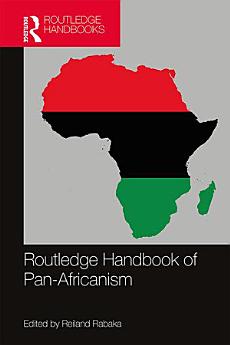Routledge Handbook of Pan-Africanism
About this ebook
The handbook features expert introductions to, and critical explorations of, the most important historic and current subjects, theories, and controversies of Pan-Africanism and the evolution of black internationalism. Pan-Africanism is explored and critically engaged from different disciplinary points of view, emphasizing the multiplicity of perspectives and foregrounding an intersectional approach. The contributors provide erudite discussions of black internationalism, black feminism, African feminism, and queer Pan-Africanism alongside surveys of black nationalism, black consciousness, and Caribbean Pan-Africanism. Chapters on neo-colonialism, decolonization, and Africanization give way to chapters on African social movements, the African Union, and the African Renaissance. Pan-African aesthetics are probed via literature and music, illustrating the black internationalist impulse in myriad continental and diasporan artists’ work.
Including 36 chapters by acclaimed established and emerging scholars, the handbook is organized into seven parts, each centered around a comprehensive theme:
- Intellectual origins, historical evolution, and radical politics of Pan-Africanism
- Pan-Africanist theories
- Pan-Africanism in the African diaspora
- Pan-Africanism in Africa
- Literary Pan-Africanism
- Musical Pan-Africanism
- The contemporary and continued relevance of Pan-Africanism in the 21st century
The Routledge Handbook of Pan-Africanism is an indispensable source for scholars and students with research interests in continental and diasporan African history, sociology, politics, economics, and aesthetics. It will also be a very valuable resource for those working in interdisciplinary fields, such as African studies, African American studies, Caribbean studies, decolonial studies, postcolonial studies, women and gender studies, and queer studies.
About the author
Reiland Rabaka is Professor of African, African American, and Caribbean Studies in the Department of Ethnic Studies at the University of Colorado, Boulder. Additionally, he is a Research Fellow in the College of Human Sciences at the University of South Africa (UNISA). He is the author of more than 50 scholarly articles, book chapters, and essays, as well as more than a dozen books including: Du Bois’s Dialectics; Africana Critical Theory; Against Epistemic Apartheid: W.E.B. Du Bois and the Disciplinary Decadence of Sociology; Forms of Fanonism: Frantz Fanon’s Critical Theory and the Dialectics of Decolonization; Concepts of Cabralism: Amilcar Cabral and Africana Critical Theory; and The Negritude Movement.




